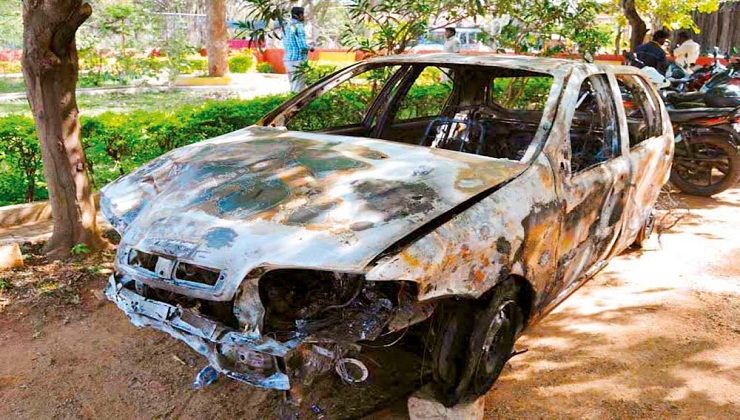
Attack on Tanzanian Girl in Bengaluru manifests India’s racism
On the evening of February 1st 2016, a Tanzanian undergraduate faced violence that her city could not contain. She was stripped, beaten and paraded naked through a Bengaluru street. Police witnessed the assault. They did nothing. What began as mistaken identity evolved into something far darker: a racial attack that local authorities have struggled to explain.
Night of mistaken blame
A Sudanese driver struck a local woman with his car in Soladevanahalli, north Bengaluru. He fled the scene. Thirty minutes later, a vehicle carrying the Tanzanian girl and her friends passed through the same area. Bystanders assumed the occupants were accomplices. The mob stopped their car immediately.
What followed unfolded with stark brutality. Onlookers set the vehicle ablaze. They beat the girl’s companions and stole their money and mobile phones. They stripped the girl and forced her to walk naked through public streets. When a man offered her a shirt, the mob attacked him, too. A bus driver refused her refuge, throwing her back towards her attackers.
Police observers stood present throughout. They offered no intervention. Witnesses reported that officers directed racial slurs at the girl and appeared to support the mob’s actions.
Official denial
The girl sought to file a police complaint the same evening. Officers refused to lodge one. They demanded she produce the alleged perpetrator before lodging any case. Only after the African Students Union organised protests on February 3rd, did police relent and register a complaint.
The city’s police commissioner disputed the account. He denied that the girl had been stripped or forced to parade naked. No investigation emerged from official channels. The inconsistencies between the victim’s statement and police denials deepened public scepticism about what had occurred.
Bengaluru pattern
The incident was not isolated. Bengaluru and Delhi have witnessed escalating violence against African and North East Indian students. Women from these regions face particular vulnerability. They encounter sexual harassment, stereotyping and physical assault with recurring frequency.
Affluent residents and students from African nations encounter systematic profiling. They are routinely labelled as drug dealers and the women as sex workers. These stereotypes drive discriminatory behaviour in restaurants, public transport and residential areas. The Tanzanian girl’s experience reflected a broader environment of racial intolerance.
An earlier incident had tested this same landscape. A Delhi government minister had accused African women from Uganda of prostitution. The accusation rested on unexamined prejudice and the casual weaponisation of stereotype.
Failure of protection
The Tanzanian girl was a Business Administration student at Acharya College. She had chosen Bengaluru as her place of study. The city offered neither safety nor justice in the hour of her greatest need. Her friends were injured. Her possessions were stolen. She was assaulted and humiliated in a public street. And the institution meant to protect her—the police—stood aside.
The timing matters. This occurred in February 2016, during a period of heightened political division in India. The context of rising communal tensions was not incidental to what transpired. It formed the backdrop against which a mob could act with apparent impunity and officials could offer complicity through silence.
Unanswered question
Bengaluru markets itself as a cosmopolitan technology hub. It attracts international students and professionals. Yet its streets can turn hostile to those who appear visibly different. The Tanzanian girl’s night exposed this contradiction with unmistakable clarity. A city that proclaims global aspirations failed to protect a foreign student from racial violence.
Her case remains largely unresolved. Official accounts dispute the facts. No perpetrators faced prosecution for assault or arson. The police complaint achieved little. And in Bengaluru, as in Delhi, students from Africa and the North East continue to navigate streets where belonging remains uncertain and safety fragile.
The attack on the Tanzanian girl represents not an aberration but a symptom. It signals what Bengaluru that has not reckoned with its prejudices looks like. Until that reckoning comes, young people from across the African continent will continue to discover what the girl learned that night: that Bengaluru’s hospitality has sharp limits, and those limits are drawn along the colour of skin.
Unsigned articles of People's Review are fruit of the collective wisdom of their writers and the editors; these articles provide ultimate insight into politics, economy, society and world affairs. The editorial freedom enjoyed by the unsigned articles are unmatchable. For any assistance, send an email to [email protected]

